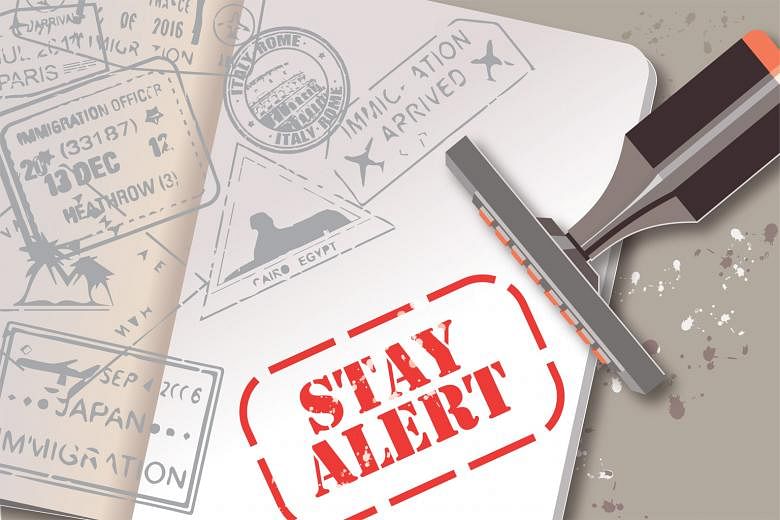It used to be that a terrorist attack in a country would tend to put off Singapore travellers from visiting for some time.
But attitudes have shifted compared with three years ago, as they appear to be less bothered by such events now and will visit these countries shortly after the attacks, said travel agencies.
Take, for instance Ms Ashley Ee, who visited Egypt even after a general travel advisory had been issued and ended up in the country when a terror attack happened.
"Terrorism isn't our No. 1 consideration when it comes to deciding where to go. Furthermore, places like the United Kingdom and France have all been recently hit, so (terrorism) can hit anywhere," said the tax consultant, 40.
She was on a 13-day guided tour in Egypt with two friends, when militants, possibly linked to the Islamic State in Iraq and Syria, carried out a deadly assault on a mosque in North Sinai on Nov 24 that left more than 300 worshippers dead.
Ms Ee was not in the affected area then. She was not too worried as North Sinai was not near the popular tourist attractions she had planned to visit, and returned to Singapore on Dec 3.
According to the Ministry of Foreign Affairs' website, an updated travel notice for Egypt was issued on Nov 2. It said "Singaporeans may wish to carefully consider their travel plans to Egypt", and advised them to avoid any travel to the Sinai Peninsula.
Travel agencies said that there are more travellers from Singapore like Ms Ee because they are more aware of the risks involved after a terror attack in another country, and they know how to take appropriate measures to guard against them.
This means that the long-term impact of terrorism on travel by Singaporeans is unlikely to be significant, the agencies added.
Dynasty Travel's director of marketing communications Alicia Seah said: "From previous records, hotel occupancy recovery after terrorist attacks has shortened in recent years. This is due to a shift in mentality among consumers and companies over the last decade."
She added that it used to take two to three months before travellers return to a city hit by terrorism. But now, after about two weeks, Singapore travellers are back.
"We have already seen a recovery of travellers into Egypt, with about 200 going there for their year-end holidays," she said.
SA Tour's marketing and communications manager Eva Wu added that travellers these days are getting increasingly savvy, more well informed and more educated.
"So, they are fully aware that terror incidents are freak accidents and cannot be predicted," she said.
Chan Brothers' marketing communications executive Justine Koh believes that while necessary precautions should be taken to ensure personal safety, "we should not allow these attacks to paralyse travel, which is an important source of revenue and employment for many countries".
Hotel booking website Expedia also observed that the most popular European destinations which Singaporeans travelled to in the first nine months of this year were the United Kingdom, France and Spain, even though these countries have been hit by terror attacks.
"From this data, you can see that, generally across the board, travel demand to these destinations was not significantly impacted," said Mr Simon Fiquet, who is the general manager for South-east Asia and India at Expedia.
While he acknowledged that there has been "short-term impact" on destinations that have been hit by terrorism in recent years, he believes such dips are not uncommon.
Ms Moh Su Jin, 21, a National University of Singapore undergraduate currently on an exchange programme in Switzerland, said taking precautions such as keeping in touch with one's family and buying travel insurance means travel plans need not be completely compromised. She travels about three times annually and was in London this year, a month after stabbings near Borough Market killed eight people in June.
"We should instead try to continue life as usual but remain cautious and vigilant of our surroundings," said Ms Moh.



